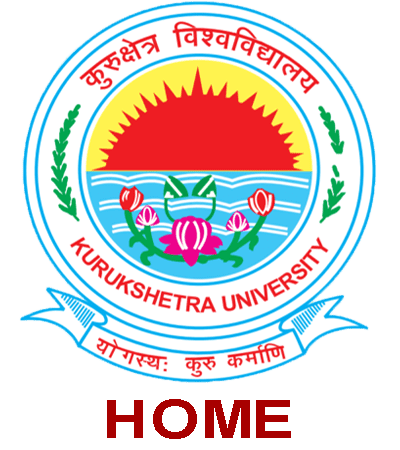Department of Psychology
Kurukshetra University, Kurukshetra
Joint Faculty
Programme Information (PG)
|
PG |
|
|
Name of the programme |
M.A. Psychology |
|
Scheme of the Programme |
CBCS |
|
Syllabus |
— |
|
PSO (Programmepecific outcomes) |
PSO1 Students will be able to acquire and explore understanding of different theoretical perspectives and apply them to study human behaviour. PSO2 Students will be able to acquire proficiencies in academics, behavioural and social spheres leading to scientific research of human interactions. PSO3 Students will be able to acquire proficiency inhandling psychological tools and demonstrate ethical application of skills in Psychological testing, Counselling and other helping areas. PSO4Students will be able to have analytical and empirical understanding of different psychological phenomena for promotion of well -being.
|
|
PEO (Programme Educational objectives) |
— |
|
PO (Programme Outcomes) |
PO (Programme Outcomes): PO 1 KNOWLEDGE:- Demonstrate knowledge of historical emergence, questions asked, and distinctive contributions of the social science disciplines to the analysis of human behavior and social issues. PO 2 PROBLEM SOLVING:-Visualize, conceptualize, articulate, and solve complex problems through experimentation and observation using theoretical framework of social science disciplines. PO 3 CRITICAL THINKING:-Critically analyze everyday problems faced by the society, evaluate specific policy proposals, compare arguments with different conclusions to a specific societal issue, and assess the role played by assumptions in such arguments. PO 4 SCIENTIFIC ENQUIRY:-Develop the capability of defining problems, formulate hypothesis, collect relevant data, develop empirical evidence and interpret the results of such analyses. PO 5 USAGE OF ANALYTICAL TOOLS:-Develop the ability to apply appropriate quantitative/qualitative techniques used in social science disciplines along with ICT, software etc. PO 6 SPECIALIZATION AND EMPLOYBILITY: – Develop deeper understanding, creativity, originality, analytical and critical skills in chosen specialized areas of social science disciplines leading to employability. PO 7 INTERDISCIPLINARY KNOWLEDGE & ADAPTATION: Enhance the ability to integrate as well as synthesize the acquired knowledge within the social sciences and beyond. PO 8 SELF DIRECTED LEARNING: – Develop the ability to work independently as well as effectively in the changing environment. PO 9 ETHICS: Articulate and apply ethics, values and ideals that demonstrate awareness of current societal challenges. PO 10 LEADERSHIP: – Build skills to work as part of a team and lead others, setting directions and formulating inspiring vision. PO 11 COMMUNICATION: Communicate conclusions, interpretations and implications clearly, concisely and effectively, both orally and in writing for different types of audiences. PO 12 PROJECT MANAGEMENT: – Use investigative skills necessary for conducting disciplinary- projects/ research documents/ term papers etc.
|
|
Time Table |
— |
|
Facilities |
— |
|
PG |
|
|
Name of the programme |
P.G. Diploma in Guidance, Counselling & Psychotherapy |
|
Scheme of the Programme |
CBCS |
|
Syllabus |
|
|
PSO (Programmepecific outcomes) |
PSO1 Students will be able to acquire and explore understanding of different theoretical perspectives and apply them to study human behaviour. PSO2 Students will be able to acquire proficiencies in academics, behavioural and social spheres leading to scientific research of human interactions. PSO3 Students will be able to acquire proficiency inhandling psychological tools and demonstrate ethical application of skills in Psychological testing, Counselling and other helping areas. PSO4Students will be able to have analytical and empirical understanding of different psychological phenomena for promotion of well -being.
|
|
PEO (Programme Educational objectives) |
|
|
PO (Programme Outcomes) |
PO 1 KNOWLEDGE:- Demonstrate knowledge of historical emergence, questions asked, and distinctive contributions of the social science disciplines to the analysis of human behavior and social issues. PO 2 PROBLEM SOLVING:-Visualize, conceptualize, articulate, and solve complex problems through experimentation and observation using theoretical framework of social science disciplines. PO 3 CRITICAL THINKING:-Critically analyze everyday problems faced by the society, evaluate specific policy proposals, compare arguments with different conclusions to a specific societal issue, and assess the role played by assumptions in such arguments. PO 4 SCIENTIFIC ENQUIRY:-Develop the capability of defining problems, formulate hypothesis, collect relevant data, develop empirical evidence and interpret the results of such analyses. PO 5 USAGE OF ANALYTICAL TOOLS:-Develop the ability to apply appropriate quantitative/qualitative techniques used in social science disciplines along with ICT, software etc. PO 6 SPECIALIZATION AND EMPLOYBILITY: – Develop deeper understanding, creativity, originality, analytical and critical skills in chosen specialized areas of social science disciplines leading to employability. PO 7 INTERDISCIPLINARY KNOWLEDGE & ADAPTATION: Enhance the ability to integrate as well as synthesize the acquired knowledge within the social sciences and beyond. PO 8 SELF DIRECTED LEARNING: – Develop the ability to work independently as well as effectively in the changing environment. PO 9 ETHICS: Articulate and apply ethics, values and ideals that demonstrate awareness of current societal challenges. PO 10 LEADERSHIP: – Build skills to work as part of a team and lead others, setting directions and formulating inspiring vision. PO 11 COMMUNICATION: Communicate conclusions, interpretations and implications clearly, concisely and effectively, both orally and in writing for different types of audiences. PO 12 PROJECT MANAGEMENT: – Use investigative skills necessary for conducting disciplinary- projects/ research documents/ term papers etc.
|
Haryana
Copyright © 2020 Kurukshetra University, Kurukshetra. All Rights
Reserved.
Powered by: Dexpert Systems
Pvt Ltd

